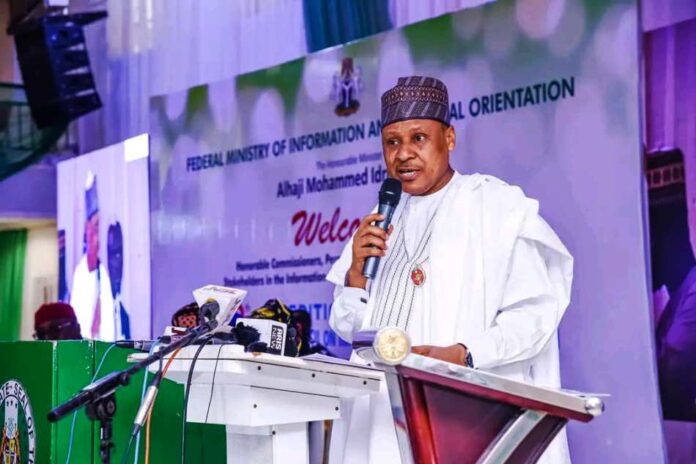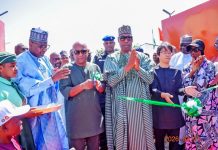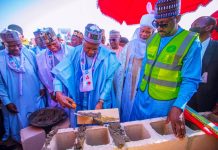FIC Report (Kaduna State) – The Minister of Information and National Orientation, Mohammed Idris, has appealed to some state governments considering the dissolution or downgrading of their Ministries of Information to reconsider the decision, stressing that the ministries are not just administrative bodies but key drivers of public engagement, national orientation, and societal cohesion.
Idris stated this in Kaduna on Friday in his address at the 48th National Council of Information and National Orientation with the theme “Enhancing Public Information Management for Inclusive Governance: The Renewed Hope Agenda in Focus,”
Mohammed Expressed would want to make a passionate appeal to some of our state governments, especially on the status and operations of State Ministries of Information.
He appeal for emphasis, goes like this: that, in the ever-broadening parameters of governance, the role of Ministries of Information at both the national and state levels cannot be overstated.
He added that these Ministries serve as the bridge between government policies and the citizens they are designed to benefit, thereby fostering transparency, accountability, and trust, which are essential pillars of any thriving democracy.
Idris also said the Ministry of Information plays a critical role in public sensitization. Through this institution, and the platforms associated with it, governments are able to educate citizens on policies, programmes, and initiatives. They also serve as vital platforms for addressing misinformation, which, if left unchecked, can erode public trust and undermine collective progress.
He added that in an era where information is both a tool and a weapon, having a dedicated body to manage its dissemination is indispensable.
Idris while Speaking on the theme of the Council, the Minister said the Renewed Hope Agenda of President Tinubu, is a clarion call for transformational leadership at all levels and people-oriented governance, which is firmly anchored on the time-honoured principle that governance must be inclusive, transparent, and centered on improving the lives of Nigerians.
Mohammed said the essence of governance lies in its ability to connect, communicate, and inspire collective action, hence information management is not merely a tool of administration but the lifeblood of democracy and development.
He said with a multiplicity of ethnic groups, languages, and religions in Nigeria, ensuring that every citizen feels heard, informed, and included in the governance process, requires deliberate efforts, especially by Information Managers.
He advised that to foster inclusion in policy formulation, information managers should leverage technology to enhance the speed, accuracy, and reach of their messaging while also integrating artificial intelligence for better audience engagement and feedback analysis.
Idris equally said gendering Public Debate for policy refinement and alignment with public aspirations is a necessary component of promoting public participation in the decision-making process.
The Minister said in every democracy, the strength of governance is deeply rooted in its ability to reflect the will and aspirations of the people.
He said Public policies, while crafted with the best intentions, must continuously evolve to meet the dynamic needs and expectations of the citizens they serve. It is within this context that public debate plays a pivotal role.
He mentioned that, you are all aware that we are currently witnessing robust debates on the Tax Reforms proposed by President Tinubu. Such debates are necessary in policy formulation and implementation in order to foster a transparent exchange of ideas, where citizens, civil society organizations, and other stakeholders can voice their opinions, and provide constructive feedback on the reform proposal of the President.
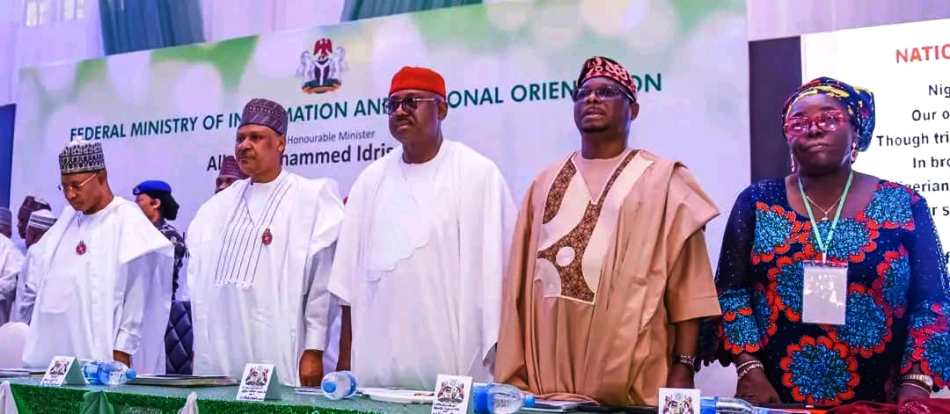
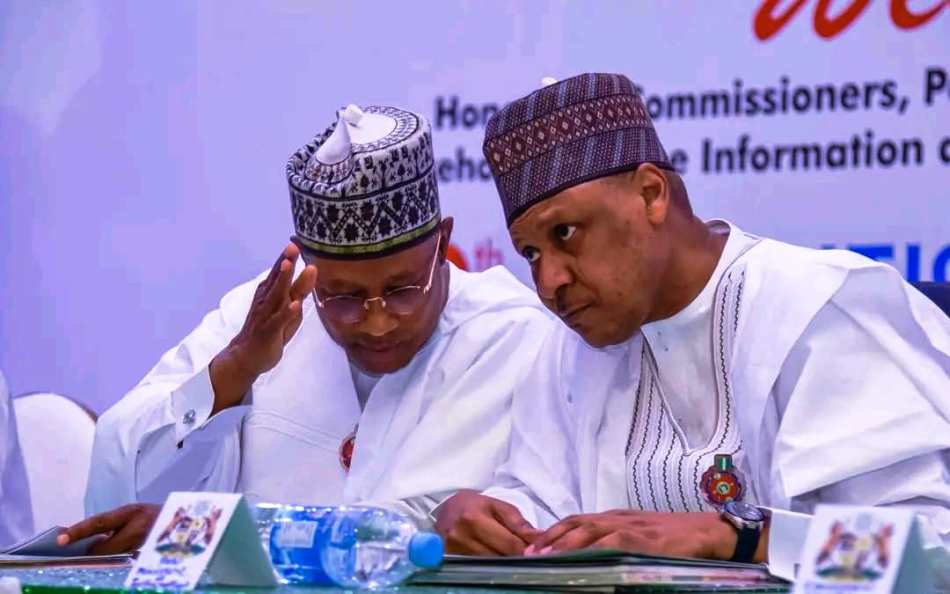
The Minister added that countering Misinformation and Fake News remains critical in information management, emphasizing that fake news poses a significant threat to governance and public trust.
He called for the provision of the necessary skills for information officers to employ fact-checking mechanisms, as well as seek collaboration with media organizations, and enhance public awareness campaigns to combat misinformation.
He said, President Tinubu recently approved the release of funds for the immediate operationalization of the UNESCO Category-2 Media and Information Literacy (MIL) Institute, the first of its kind in the world, and embedded in the precincts of the National Open University of Nigeria (NOUN) in Abuja, to equip people with the tools to discern between credible sources and misinformation.
Mohammed said In an era where fake news, propaganda, and biased reporting can significantly influence public opinion and decision-making, media literacy fosters critical thinking. It helps individuals analyze the intent behind media messages, understand the context in which they are presented, and assess their accuracy and relevance.
He urge the Commissioners for Information to take advantage of this very important Institute once it takes off, in order to further build the capacity of our staff in combating the menace of fake news, misinformation, and disinformation.
In his remarks the Kaduna State Governor Senator Uba Sani welcome all the Stakeholders to Kaduna for the 48th Edition of the National Council Meeting on Information and National Orientation.
Uba said this gathering is historic, as it brings together the highest policy-making council of information for our great nation. Information plays a vital role in a democracy, and its significance in governance, especially in a pluralistic nation like Nigeria, cannot be overstated.
He mentioned that the theme of this meeting “Enhancing Public Information Management for Inclusive Governance: Renewed Hope in Focus” is apt. It not only reminds us of the critical role that information plays in democratic societies, but is reflective of our commitment to a process – led and participatory approach to governance. Effective public information management is crucial for promoting transparency, accountability, and citizen participation in governance.
He also said the history of Nigeria cannot be written without a prominent mention of information managers or the media.
He said the Nigerian media was in the forefront of the battle against the colonial masters. It collaborated with other progressive forces to wage pitched battles against military authoritarianism. It has remained committed to the promotion and protection of our democracy.
Sani express that he was part of the product of the struggle.
Also added that was in the trenches with key media personalities and information managers as we struggled to restore democracy to our country. We therefore have a stake in this democracy and must do all in our power to consolidate and defend it.
He said we have viewed with grave concern how elements whose interests are alien to democracy have been working assiduously to derail our country’s hard won democracy. They have been manipulating our people and creating disunity. They politicize virtually everything. They have been de-marketing our country and giving it a negative image in the international community. We must watch them closely and devise strategic communication strategies to counter their divisive and negative narratives.
Governor said Our dear President, Bola Ahmed Tinubu, GCFR assumed office at a trying time in the nation’s history. He inherited a near comatose economy. He therefore has the unenviable task of initiating and implementing far-reaching measures to prevent the Nigerian economy from collapse. Because of global economic meltdown and years of mismanagement in Nigeria, fixing our economy requires time and sustained re-engineering. That is why Mr. President has come up with innovative and creative solutions to reinvent the economy and put our nation irreversibly on the path to sustainable growth and development.
Uba said although some of the measures have been painful, they are being implemented with good intentions, for the greater good of the Nigerian people. As a Father of the nation, President Tinubu has continued to renew our hope in the possibilities of the Nigerian nation.
Uba said in Kaduna State, we are making significant strides in promoting transparency and accountability. A major pillar of our Governance Agenda is Nurturing Citizens Engagement. We are committed to carrying the people along in decision – making processes, especially on how their resources are allocated and expended. We recognize the important and strategic role of citizens in holding government accountable and accelerating growth and development. Consequently, we have been holding regular meetings with Kaduna State Elders Forum, religious leaders, youth and women to share thoughts on development issues/concerns, current and emerging security issues, and fashion strategies on how to address them. The people are the greatest weapons against enemies of progress and development.
He said additionally, we are implementing innovative solutions to enhance public information management through the Open Government Partnership (OGP) principles. For instance, we involve civil society organizations in budget planning and implementation processes. We also hold regular town hall meetings with the public.
Sani emphasis that Our Eyes and Ears citizen feedback app notifies government officials of the status of services in healthcare clinics
The 48th National Council of Information and National Orientation was declared open by the Kaduna State Governor, Senator Uba Sani.
Signed:
Muhammad Gwani
HOC Kaduna.



